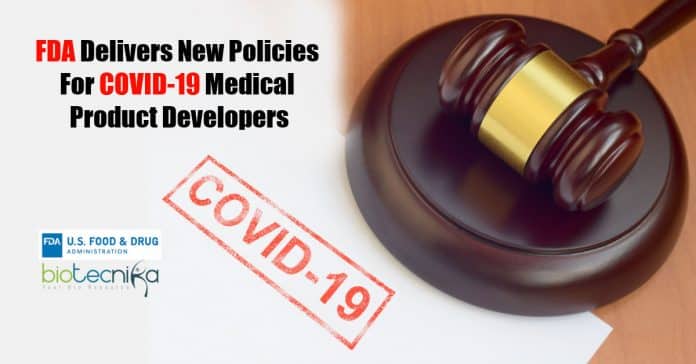FDA delivers new Policies to Guide Medical Product manufacturers Addressing Virus Variants
The U.S. FDA issued new guidelines for medical product developers, particularly including vaccines, diagnostics, and therapeutics items, to address the emergence and possible future emergence of SARS-CoV-2 variants.
Vaccines
U.S. FDA renewed its guidelines, EUA for Vaccines to Prevent COVID-19, to give instructions to vaccine developers who are attempting to revise their EUA to address novel variants and have already got EUA for their COVID-19 vaccines.
The updated guidance sketches the FDA’s scientific recommendations for alterations to approved vaccines. E.g., the FDA anticipates that details of production will continue to be the same for an approved vaccine and an altered vaccine candidate from the very same producer. For clinical info, the guideline suggests that ascertainment of efficiency be backed by information from clinical immunogenicity studies, which would contrast a receiver’s immune response to virus variants caused by the altered vaccine against the immune response to the licensed vaccine.
Furthermore, vaccine producers are urged to examine the modified vaccine in both non-va
ccinated people and those who are already vaccinated with the approved vaccine. Also, the guideline drafts the FDA’s guidance for evaluations of safety to sustain a EUA for a revised vaccine. Lastly, the guidance declares that further analyses will be essential to choose whether, in the future, altered COVID-19 vaccines might be approved without the demand for clinical examinations.COVID-19 Tests
The has FDA released new guidance for test developers offering info on assessing the possible influence of arising and future viral genetic mutations, which may be the source of viral variants, on COVID-19 tests. The FDA has released a safety warning that the presence of viral genetic mutations in a sample can alter the efficiency of a diagnostic test. The FDA distinguished some tests that are perceived to be influenced by arising viral mutations, though, during this period, the influence does not appear to be substantial.
The clinical influence of viral genetic mutation on a test’s efficiency is affected by numerous aspects, like the design of the test (like molecular tests devised to identify numerous SARS-CoV-2 genetic targets are less susceptive to the impacts of a genetic variant than tests devised to identify a single genetic target), the sequence of the variant, and the occurrence of the variant in the patient populace. The guidance explains the FDA’s actions to properly know the public influence of new virus variants and the effect on test efficiency, like monitoring publicly available genomic data sources for arising SARS-CoV-2 genetic mutations and monitoring the prospective effects of genetic variation on molecular examinations that have actually been provided a EUA.
The guidance likewise gives instructions to test developers, like recognizing the possibility for prospective viral genetic mutations when outlining their examination and carrying out their regular tracking to examine the possible influence of new and arising viral genetic mutations, which may be the base of viral variants, on the efficiency for antigen, molecular, and serology SARS-CoV-2 tests.
Therapeutics
The FDA has released new guidance to address the influence of arising variants of SARS-CoV-2 on the development of monoclonal antibody products targeting the virus. Additionally, FDA has updated 2nd guidance, including medicines and biological items more widely for COVID-19.
The new guidance offers suggestions for the SARS-CoV-2 virus targeting monoclonal antibody developers. This guidance gives suggestions on reliable methods for the generation of non-clinical, clinical, and chemical production and manages information that can support a EUA for monoclonal antibody products that might be efficient against emerging variants.
The modified guidance, including medicines and biological products generally, explains the FDA’s present guidance concerning phase 2 and phase 3 clinical trials for drugs and biological products under development, consisting of the safety considerations, test design, efficiency endpoints, patient populace, and the statistical considerations for such trials, etc.
FDA delivers new Policies to Guide Medical Product manufacturers Addressing Virus Variants
Also Read:



























